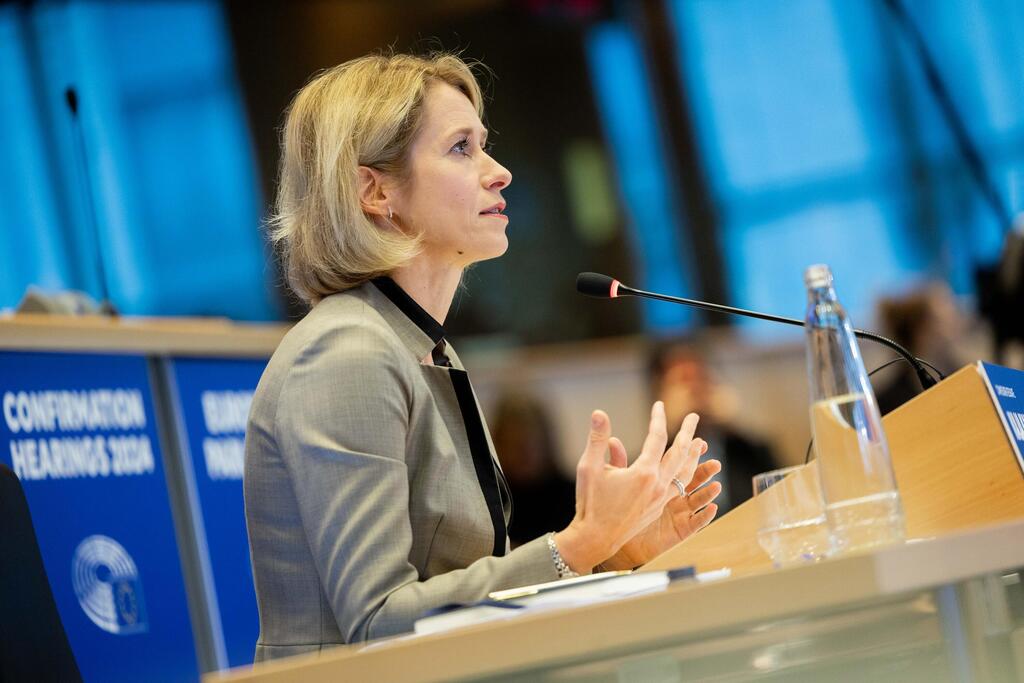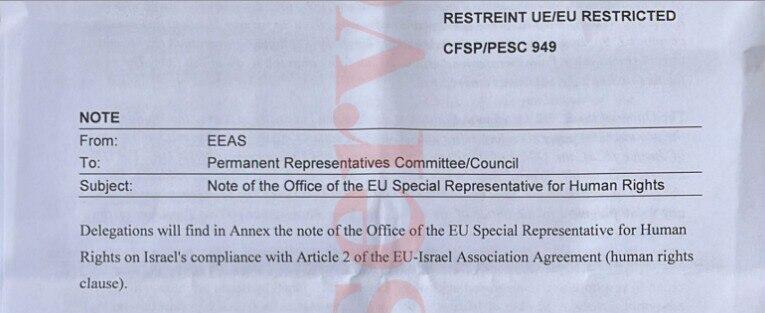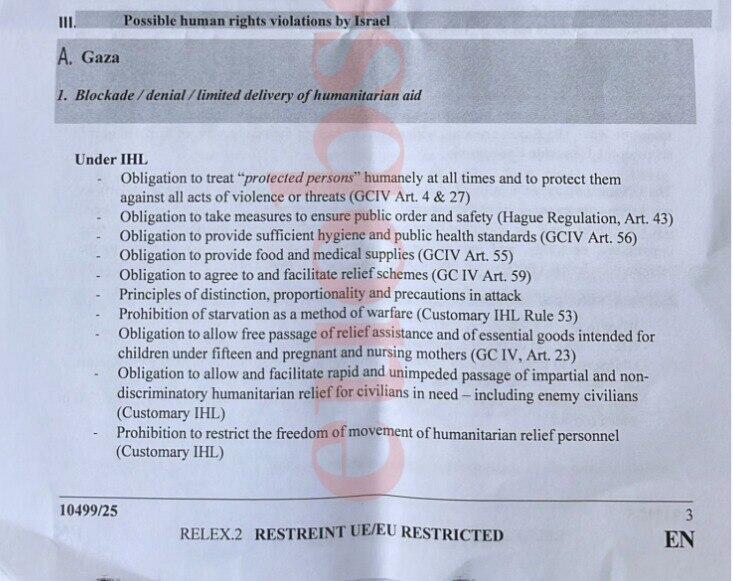European Union foreign ministers are expected to meet on Monday to discuss a newly circulated report by the EU External Action Service that implicitly recommends considering sanctions against Israel for its conduct in the war in Gaza and its ongoing policies in the West Bank.
While the report raises the possibility of sanctions, practical discussion on the matter is unlikely this week due to strong opposition from Israel’s allies within the bloc, particularly Germany and the Czech Republic. Their intervention is expected to keep the issue at the level of brainstorming rather than advancing to any concrete policy proposals.
As a result, any decision on potential punitive measures against Israel has been postponed at least until next month. Germany and the Czech Republic reportedly pushed back firmly against countries like Belgium, Ireland, Spain and Slovenia, which support stronger actions.
The report, commissioned by 17 EU member states and later joined by two others, outlines potential violations of international law that could breach Article 2 of the EU-Israel Association Agreement, which underpins bilateral relations.
Get the Ynetnews app on your smartphone: Google Play: https://bit.ly/4eJ37pE | Apple App Store: https://bit.ly/3ZL7iNv
It cites Israel’s alleged responsibility for the humanitarian crisis in Gaza, use of starvation as a weapon, indiscriminate firing, non-compliance with International Court of Justice rulings, settler violence and the expansion of settlements.
Distributed to European capitals only on Friday, the report drew criticism from diplomats who said it was shared too late for adequate preparation ahead of Monday’s Council meeting and was accompanied by requests for confidentiality.
Human rights groups that obtained copies of the document also criticized what they called its cautious language. They attributed the vague phrasing to political sensitivities and the balancing efforts of EU foreign policy chief Kaja Kallas and European Commission President Ursula von der Leyen.
Because the EU has no independent presence in Gaza, the report relies heavily on United Nations sources and non-governmental organizations, similar to a previous document commissioned in late 2024 by then–EU foreign policy chief Josep Borrell.
The next step is expected to involve drafting a non-binding list of potential measures that Kallas could use in talks with Israeli officials. However, even forming a theoretical list is expected to prove difficult, as several countries that supported the report have already signaled opposition to actual sanctions. As a result, EU officials say the chances of securing a qualified majority for enforcement remain low.






